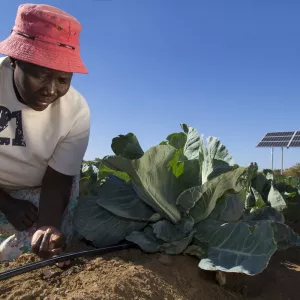Solar for all: Enhancing access to affordable and sustainable solar-powered irrigation
Around 2 billion people globally are food insecure. Yet strategies to reduce chronic hunger and improve nutrition and livelihoods are limited by risks related to climate change and ecological resilience. Irrigation has long been used to increase food production, and recent studies suggest that irrigation in severely food insecure areas offers multiple pathways to improved nutrition. Off-grid solar irrigation, in

Solar for all: Enhancing access to affordable and sustainable solar-powered irrigation
Around 2 billion people globally are food insecure. Yet strategies to reduce chronic hunger and improve nutrition and livelihoods are limited by risks related to climate change and ecological resilience.
Irrigation has long been used to increase food production, and recent studies suggest that irrigation in severely food insecure areas offers multiple pathways to improved nutrition. Off-grid solar irrigation, in particular, has immense potential to provide a cost-effective and sustainable energy source to secure food production and sustain livelihoods in line with multiple Sustainable Development Goals. In sub-Saharan Africa alone, the market for small solar water pumps is expected to triple over the next decade, driven by income growth and falling pump prices. At the same time, however, the lack of an integrated approach to the expansion of solar irrigation remains a hurdle to its appropriate adoption in many places.
Photo credit: David Brazier/IWMI

